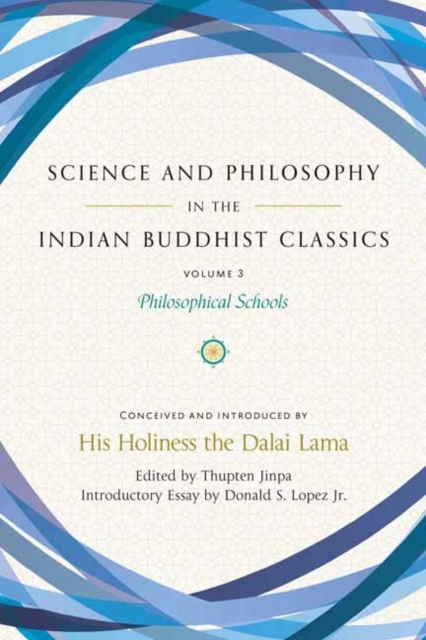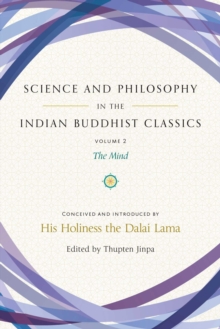
Science and Philosophy in the Indian Buddhist Classics, Vol. 3 : Philosophical Schools Hardback
Edited by Thupten Jinpa
Part of the Science and Philosophy in the Indian Bud series
Hardback
Description
Deepen your understanding of meaning and truth with the third volume of the Dalai Lama's esteemed series Science and Philosophy in the Indian Buddhist Classics.
Science and Philosophy in the Indian Buddhist Classics compiles classical Buddhist explorations of the nature of the material world, the human mind, reason, and liberation, and puts them into context for the modern reader. This ambitious four-volume seriesa major resource for the history of ideas and especially the history of science and philosophyhas been conceived by and compiled under the visionary supervision of His Holiness the Dalai Lama himself. It is his view that the exploratory thinking of the great masters of classical India still has much that is of interest to us today, whether we are Buddhist or not. These volumes make those insights accessible.
In this third volume the focus turns to exploring the philosophical schools of India. The practice of presenting the views of various schools of philosophy dates back to the first millennium in India, when proponents of competing traditions would arrange the diverse sets of philosophical positions in a hierarchy culminating in their own school's superior tenets. Centuries later, relying on the Indian Buddhist treatises, Tibet developed its own tradition of works on tenets (grub mtha'), often centered on the four schools of Buddhist philosophy, using them to demonstrate the philosophical evolution within their own tradition, and within individual practitioners, as they progressed through increasingly more subtle expressions of the true reality.
The present work follows in this venerable tradition, but with a modern twist. Like its predecessors, it presents the views of seven non-Buddhist schools, those of the Samkhya, Vaisesika, Nyaya, Mimamsa, Vedanta, Jaina, and Lokayata, followed by the Buddhist Vaibhasika, Sautrantika, Cittamatra, and Madhyamaka schools, arranging them like steps on a ladder to the profound. But rather than following in the sharply polemical approach of its ancient predecessors, it strives to survey each tradition authentically, relying on and citing the texts sacred to each, allowing the different traditions to speak for themselves. What, it asks, are the basic components of the world we experience? What is the nature of their ultimate reality? And how can we come to experience that for ourselves? See how the rich spiritual traditions of India approached these key questions, where they agreed, and how they evolved through dialogue and debate.
This presentation of philosophical schools is introduced by His Holiness and is accompanied by an extensive introduction and survey by Professor Donald Lopez Jr. of the University of Michigan, who is uniquely qualified to communicate the scope and significance of this literary and spiritual heritage to modern readers.
Information
-
Less than 10 available - usually despatched within 24 hours
- Format:Hardback
- Pages:536 pages
- Publisher:Wisdom Publications,U.S.
- Publication Date:13/12/2022
- Category:
- ISBN:9781614297895
£23.00
£19.19
Information
-
Less than 10 available - usually despatched within 24 hours
- Format:Hardback
- Pages:536 pages
- Publisher:Wisdom Publications,U.S.
- Publication Date:13/12/2022
- Category:
- ISBN:9781614297895








